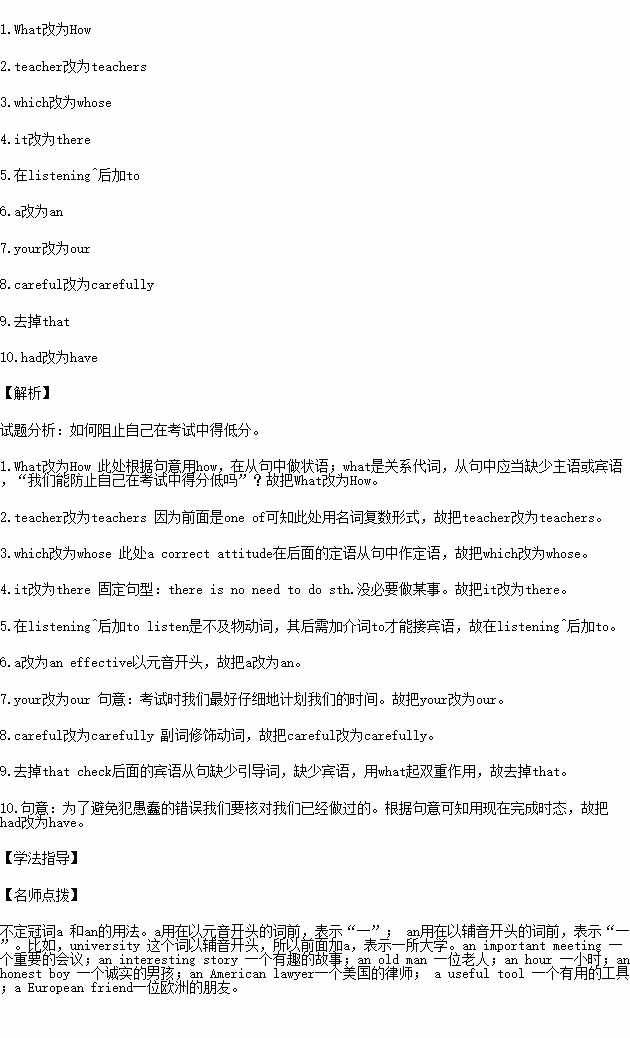题目内容
假定英语课上老师要求同桌之间交换修改作文,请你修改你同桌写的以下作文。文中共有10处语言错误,每句中最多有两处。错误仅涉及一个单词的增加、删除或修改。增加:在缺词处加一个漏字符号(∧),并在其下面写出该加的词。删除:把多余的词用斜线(\)划掉。修改:在错的词下划一横线,并在该词下面写出修改后的词。
注意:1.每处错误及其修改均仅限一词;2.只允许修改10处,多者(从第11处起)不计分。
What can we prevent ourselves from getting low scores in exams? Here, one of our teacher gives us some useful suggestions.
It's important to have a correct attitude toward exams, which purpose is to see how we're getting on with our study. So it is no need to worry about the results.
Before exams, control our test anxiety by listening some light music. Besides, learning from the past-exam mistakes is also a effective way. While taking exams, we'd better plan your time careful. And then we should spare a few minutes to check that what we had done to avoid silly mistakes.

